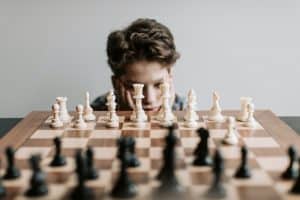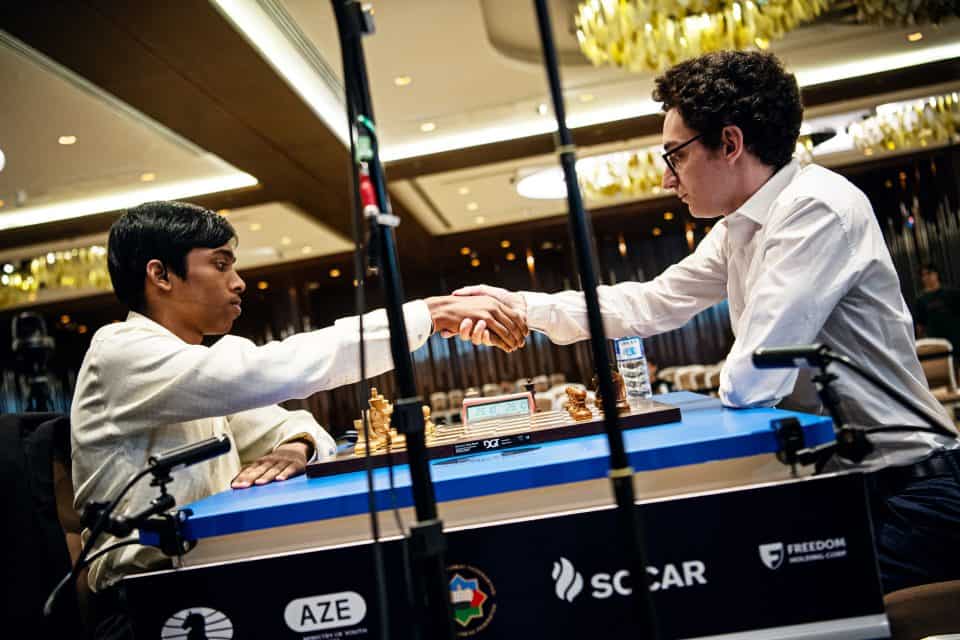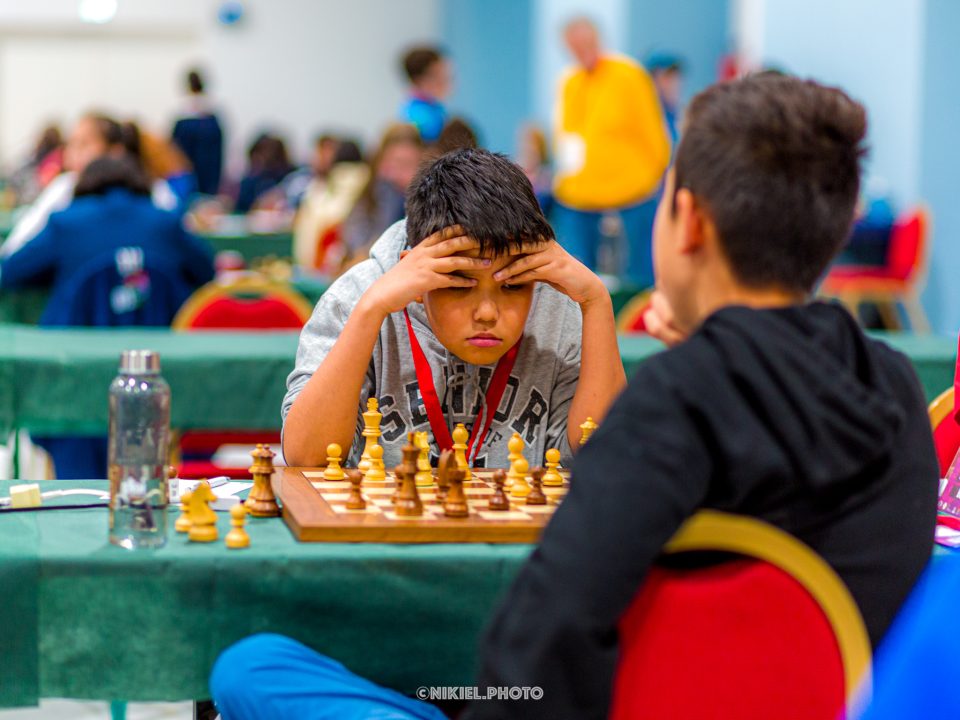Material refers to the number of pieces and pawns on the board.
An advantage in chess refers to a situation where you have an edge over your opponent. It could be more time, a better position or you are a piece up.
In chess, material advantage refers to the quantity of pieces and pawns on the board.
The player with more material can gain control by forcing the opponent’s pieces into defensive positions and then using the extra material to attack new targets.
Most grandmasters resign when they fall behind in material, even if it’s just a piece, since they understand the value of extra material.
They know their chances to beat another grandmaster whilst being a piece behind is almost zero
The simplest way to determine which player has a material advantage is to compare the point-values of the remaining pieces on the board.
The legendary world-champion, Bobby Fischer, strongly believed in the importance of what we will now call the “material objective”: Focus on winning material because the player with more pieces can gain control by using their extra forces to attack more targets than what the opponent can defend.
Understanding the relative value and point value of pieces will help to achieve your material objective.
The point value is the average value of each piece in any position.
| Pieces | Point Value |
| Pawns | 1 point |
| Bishop | 3 points |
| Knight | 3 points |
| Rook | 5 points |
| Queen | 9 points |
| King | Infinite (can’t be captured) |
Material superiority isn’t the only factor that determines who has an advantage, but it is often the most important one.
There are other types of advantages to play for in chess before you finally win the game:
Positional advantage: Positional advantages are a little more challenging to recognize and quantify. They generally refers to having your pieces on the most optimal squares, but it may also refer to your opponent’s pieces being placed on bad squares.
Tactical advantage: Tactical advantages are even harder to identify. They usually refers to a small window of opportunity in which you can take advantage of your opponent’s pieces. More often than not, this comes in the form of forcing the win of material.
Space advantage: Space is also easy to recognize. Having a space advantage means you have more squares to place your pieces. This is obtained by having pawns extended forward and controlling squares in your opponent’s camp and preventing them from doing the same to you.
Time advantage: When you have more time than your opponent, you can evaluate moves longer and find the best move more often.
Developmental advantage: Developmental advantage refers to having your pieces off the back rank and on more active squares. This advantage can be obtained in the opening but slowly diminishes as the game continues and all pieces are developed or captured.
So, how can knowing what advantages exist improve your game?
Before you move a piece, you should always consider — Does this move give me an advantage? If it doesn’t, look for another move that will.
Learning how to study chess requires you to make the most of every move you are given.
If a move gains multiple advantages, it’s more likely a better move than a move that gives you only one advantage. To find a winning edge, you must be looking for it.






1 comment
Joseph
Helpful information, I suggest you include ways to either improve on the advantages.